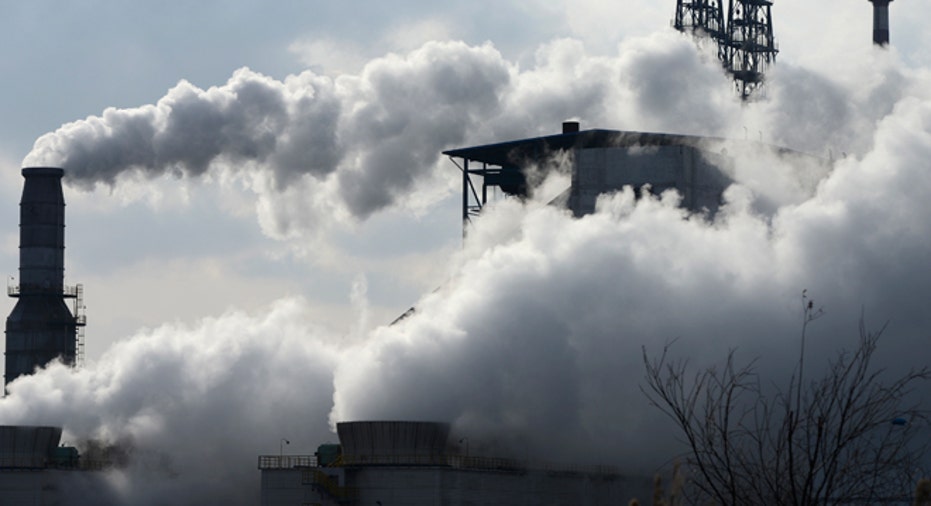Sinopec to Sell $17.5B Retail Stake in Privatization Push

State-controlled oil giant Sinopec Corp on Sunday unveiled a plan to sell a $17.5 billion stake in its retail business, marking the country's biggest privatization push since President Xi Jinping came to power almost two years ago.
The sale is a reflection of the government's drive to restructure the country's many sprawling state-owned enterprises. PetroChina <0857.HK>, the nation's No.1 energy producer, has divested part of its pipeline business, raising billions of dollars from domestic institutional investors.
The sale also highlights Sinopec's hope that outside investors would be a catalyst for growth and reform at its currently low-margin retail unit. But some analysts say a lack of retail names on the investor list is lowering their expectations of a quick turnaround. The presence of private equity firms also presents a risk in which they may exit the business when Sinopec lists the subsidiary in a couple of years.
Sinopec's retail unit will issue new shares to a group of 25 largely deep-pocketed financial companies like insurers and funds and raise 107.1 billion yuan ($17.5 billion), the company said in a filing with the Hong Kong and Shanghai bourses.
The investors will get a combined 29.99 percent stake in the unit, which comprises a wholesale business, more than 30,000 petrol stations, over 23,000 convenience stores, as well as oil-product pipelines and storage facilities. Each investor would not hold a stake exceeding 2.8 percent.
Besides capital, the investors are expected to bring in "strength and vitality" that will help reform and grow the retail unit, Sinopec Chairman Fu Chengyu said in a statement.
Sinopec will use the $17.5 billion from the sale to optimize its fuel retail business, boost non-fuel sales and pay down debts owed to parent company, Chai Zhiming, deputy chief executive of the retail unit, told Reuters in a telephone interview on Monday.
Sinopec is looking for expertise and ideas to boost its non-fuel businesses which include convenience stores and services such as fast food and car washes. Unlike the West, where non-fuel revenue can account for more than half of a filling station's profits, over 99 percent of Sinopec's retail sales come from petrol.
"Definitely this is an area that has room for growth," James Roy, associate principal of Shanghai-based business consultancy China Market Research Group, said of Sinopec's non-fuel business.
Leading investors on the deal include one of China's biggest asset managers Harvest Fund Management Co Ltd, which will pay 15 billion yuan for a joint stake with its subsidiary Harvest Capital Management. China Life Insurance <601628.SS> and a consortium including People's Insurance Group of China Co Ltd <1339.HK> and Tencent Holdings Ltd <0700.HK> are each taking 10 billion yuan stakes.
Other investors include Fosun International <0656.HK>, China gas supplier ENN Energy Holdings Ltd <2688.HK> and white goods maker Haier Electronics Group Co Ltd <1169.HK>.
Asia private equity firm RRJ Capital, founded by former Goldman Sachs <GS.N> and Hopu Investment Management dealmaker Richard Ong, is among the foreign investors in the deal with a 3.6 billion yuan stake.
THE SCEPTICS
"The addition of private-sector capital is highly complementary to a state-owned business," Sinopec <600028.SS><SNP.N> Chairman Fu said.
Sinopec has signed agreements with multiple Chinese firms this year to expand the spectrum of services offered by its petrol stations. The companies include Tencent Holdings, delivery service firm S.F. Express, retailer Ruentex Group, e-commerce firm YHD.com and Taiping Insurance Group.
Sinopec's retail unit is aiming for "fairly high" growth in its non-fuel business in the coming years, Chai said. The unit will deploy capital to refurbish convenience stores, set up joint ventures with its partners, boost its car wash and other automobile-related services, and build up its network of natural gas refuelling stations, he added.
But it is no easy task.
While Sinopec boasts the world's largest single-country retail network, analysts say the profitability of the Chinese convenience market is hindered by fierce competition as well as rising labor and rental costs.
Investors may also have a lack of influence on the firm's business strategy, hiring, as well as day-to-day operations, analysts say.
The retail unit plans to appoint 11 board directors, including three from the latest investors, four from Sinopec, three independent directors and one representing employees, a company source familiar with the matter told Reuters.
The stake sale plan has been viewed by sceptics as largely a response to Beijing's policy drive to scale down the monopolies controlled by state-owned enterprises and promote private investment in the world's second-largest economy.
Some also view it as an attempt by Chairman Fu to cash in on a volume-driven, low-margin, and perhaps, deteriorating business and raise capital to repair the firm's battered balance sheet. Sinopec needs capital to bolster its finances and reinforce investment in exploration and production, analysts say.
Sinopec's marketing business has been a relatively stable and major source of profit for the group. But the division has suffered a decline in earnings in recent years due to slowing fuel demand growth and cost inflation.
Shares of Sinopec tumbled over 5 percent in Hong Kong on Monday after the announcement of the stake sale, which Sinopec said represented a premium of more than 20 percent to the book value of the business.
The shares had gone up sharply since late February when Sinopec announced its stake sale plan.



















